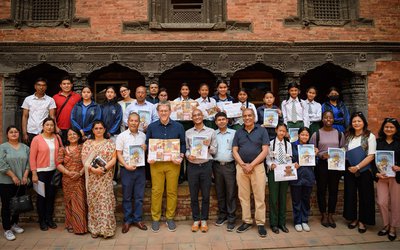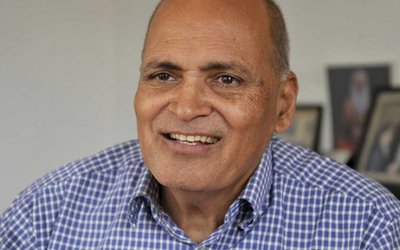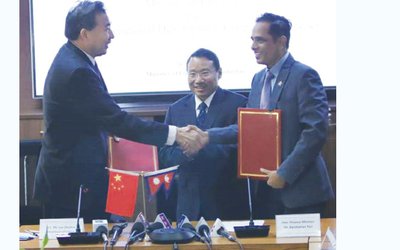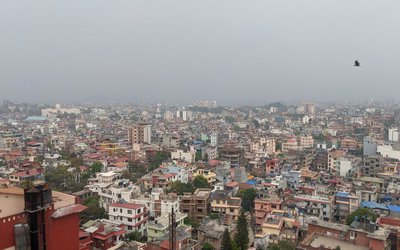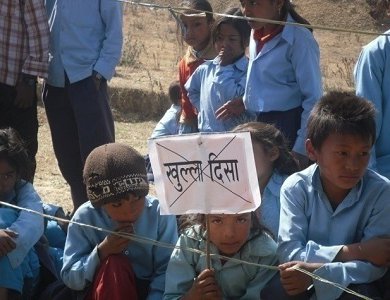
Poverty Reduction has always been a significant challenge for country, to taste the fruits of development and always prioritized from the first five year country development plan. Although better improvement for entire supporting factor are also prioritized, where sanitation issues are reflected only in fourth development plan. After a decade, water and sanitation hygiene get a precious space.
Cleanliness is the sign of civilization; Internalizing this fact collective effort and consensus have been able to make within multiple stakeholders for sanitation promotion, as it is considered as fundamental human rights of human beings. Access to improved and hygienic toilets and attainment of open defecation free (ODF) status are considered to be the main indicators for assessing the state of sanitation. Primarily ODF is a major component but also constitutes high worth for sanitation promotion. Universal coverage of drinking water and sanitation and to increase the sanitation facilities for all citizens within 2017, in which ODF is the basic foundation for all sanitation intervention. The goal would be precarious if all districts were no more open defecation.
During the nine years struggle of ODF movement in Nepal only 13 district out of 75, 15 municipality out of 58 and 1274 VDCs out of 3915 are ODF declared (http://www.wash-rcnn.net.np/nwa/odf-updates.html, May 7, 2014). Meanwhile, data reveal that total sanitation coverage is only about 62 percent. In this contrast, from the rough calculation 2 VDC should be declared ODF per day for achieving national goal, this is a ground reality and make skeptic to entire people to meet national goal within current social, economical, financial and cultural milieu.
After the promulgation of Sanitation hygiene master plan (SHMP) in 2011 results to, increases rhythm of ODF declaration and has been pulled up in a mounting order, brings big flows and makes everyone to think once. In fact, ODF movement is bright to knock a layman too. Afterwards SACOSAN-V is additional effective events able to pile up the movement in a climax, which was host by Nepal itself. Periodically events and various campaigns are parallelly rolling out in both national and local level, via different actions. Eventually, such actions are worthy to transform the negative mindset of people basically in rural parts and able to bring up positive vibes.
Social taboo, superstitious belief and antipodal tendency towards construction of toilets are playing significant unconstructive role to propel the movement. However, level of awareness is increased in a decreasing rate. Undoubtedly, it isn't easy task to break the path as it rooted from very earlier but progressive changes are witnessed during different spam of time. In addition to this, people with low income can't able to construct a toilet although she/he is aware, where Dalit community from both Hill and Terai are under the poverty line and highly victimized. Apart from this not only in hill and terai seasonal migration in Himalayan region are continuous to run traditional daily livelihood and to feed family member at any cost, where financial burden for single household will be double to construct two toilets within low income. As such, Allocation of budget should be done in a scientific way at both national and local level so that it would very easy to reached the unreached. Beside this hard work and proper action plan should be made to reach the deprived group to bring expected results.
Vibrant community based and civil society organizations have put active participation for the ODF movement at bottom, which is very admirable and necessary to make them determined and self prestigious. Nowadays the perception towards ODF movement has been changed as it is linked with social status and also became a primary indicator to mark as a healthy village. Afterwards, Initiatives from local community and internalizing its importance are enlarged.
In a one hand the movement has highly accelerated but in the other hand the issue of sustainability and behavioral changes came on forefront. Firmly, both aspects hold significant value and shouldn't be undermine. In some cases, practices and use of common toilets by many households are visualized and later declared no defection free. In such condition question of sustainability will arise, for the rampant declaration strong monitoring mechanism should be actively involved keeping sustainable centric approach at middle rather than to make work done i.e. declaration for the sake of declaration.
Collective effort from entire sector stakeholder is tremendously increased at full fledge to meet national goal meanwhile, area of Possible partnership for private sector and others should be identified by the concerned stakeholders to make all alert about alarming facts. Specific target should be made to reach highly deprived group by providing them necessary support. The progress till date received are highly adorable within limited time, budget and resources and usual zeal and hard work of entire stakeholder would only made best result to meet the national goal.

Bishesh Aryal
Aryal is a Program Assistant of Federation of Drinking Water and Sanitation Users' Nepal(FEDWASUN). He can be reached at bishesh.aryal00@gmail.com
- Sanitation, Justice And Development
- Jan 16, 2015

